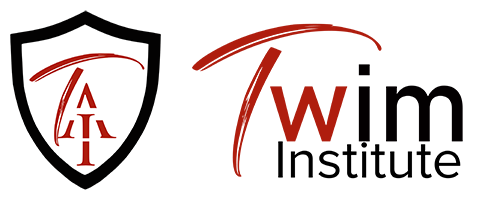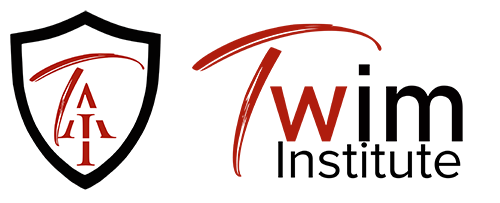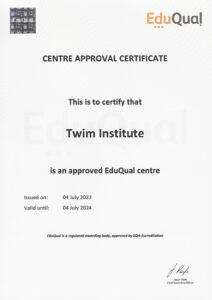
Digital marketing is a form of marketing that uses digital channels such as search engines, social media, email, websites, and mobile apps to promote products or services.
It involves creating online strategies and tactics that help businesses connect with their target audience, build brand awareness, generate leads, and ultimately drive sales. Essentially, digital marketing is the practice of using digital technologies to reach and engage with customers to achieve business goals.
It is an essential component of modern-day marketing strategies for businesses of all sizes, as it allows them to reach a wider audience and engage with customers on a more personalized level.
The key advantage of digital marketing over traditional marketing is its ability to track and measure the success of campaigns in real time, allowing businesses to optimize their marketing strategies and improve their return on investment (ROI).
Some common digital marketing techniques include search engine optimization (SEO), pay-per-click advertising (PPC), social media marketing, email marketing, content marketing, and mobile marketing.
These techniques can be used individually or in combination to create comprehensive and effective digital marketing campaigns.
As technology continues to evolve, digital marketing is becoming increasingly complex and sophisticated, with new channels and platforms constantly emerging.
To succeed in this field, marketers must stay up-to-date with the latest trends and best practices, and be prepared to adapt their strategies accordingly.
Digital Marketing for Non-Coders
You might have been wondering why a lot of techies, particularly the newbies, prefer to settle for courses such as Digital Marketing, UI and UX designs, etc. The reason isn’t far-fetched, it is because these courses do not necessarily require the students to code.
Digital marketing is preferred by newbies into tech who are not interested in coding because it offers a variety of opportunities to learn and apply marketing skills in a digital environment without requiring extensive coding knowledge.
Here are a few reasons why:
- Low entry barrier: Digital marketing is one of the most accessible fields in the tech industry. With a computer, an internet connection, and some basic knowledge, anyone can get started with digital marketing.
- In-demand skill set: Digital marketing is an in-demand skill set as companies are increasingly focusing on their online presence. With the right set of skills, digital marketers can work for a variety of companies in a range of industries.
- Data-driven approach: Digital marketing is all about data. Digital marketers use a variety of tools to analyze user behavior and optimize marketing strategies. As a result, digital marketing offers a unique blend of creativity and data analysis that is appealing to many.
Some Digital Marketing Techniques
Some popular digital marketing techniques include the following:
Search Engine Optimization (SEO)
SEO involves optimizing your website and content to rank higher in search engine results pages (SERPs) for specific keywords and phrases. It includes both on-page and off-page optimization techniques.
Pay-Per-Click (PPC) Advertising
PPC advertising involves paying for each click on an ad displayed on search engine results pages or other websites. It is an effective way to get immediate traffic to your website and increase sales.
Content Marketing
Content marketing involves creating and sharing valuable content such as blog posts, videos, infographics, and social media posts to attract and engage with your target audience.
Social Media Marketing
Social media marketing involves promoting your brand and content on social media platforms like Facebook, Twitter, Instagram, and LinkedIn. It helps you to connect with your audience, build relationships, and increase brand awareness.
Email Marketing
Email marketing involves sending promotional messages to your subscribers to promote your products or services. It is an effective way to nurture leads, build customer loyalty, and drive conversions.
Influencer Marketing
Influencer marketing involves partnering with influencers or industry leaders to promote your brand and products. It helps you to reach a wider audience and build credibility and trust with your target customers.
Affiliate Marketing
Affiliate marketing involves partnering with affiliates or other businesses to promote your products or services. It is a performance-based marketing technique where you pay a commission to affiliates for every sale or lead they generate for your business.
Video Marketing
Video marketing involves creating and sharing videos to promote your brand and products. It is an effective way to engage with your audience, build brand awareness, and drive conversions.
Conclusion
To round this article up, digital marketing is a crucial component of any business strategy in today’s world, and it doesn’t necessarily require coding skills to be successful.
As a newbie into tech, with the right tools and resources, even non-coders can effectively implement digital marketing strategies to reach their target audience, increase their online visibility, and ultimately drive conversions.
Some key areas of digital marketing that non-coders can focus on include search engine optimization (SEO), social media marketing, email marketing, content marketing, and paid advertising.
Ultimately, the key to successful digital marketing for non-coders is to have a solid understanding of your target audience and what they want and to use the right tools and channels to reach them effectively.
Which of these courses would you love to fully optimize this month of March? Twim Institute’s got you! All you need to do is reach out via +2349033279205 for more inquiries.




